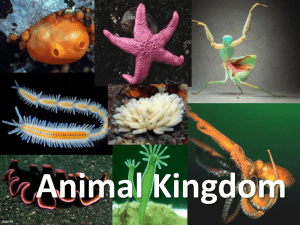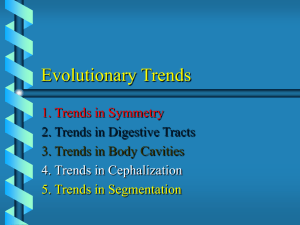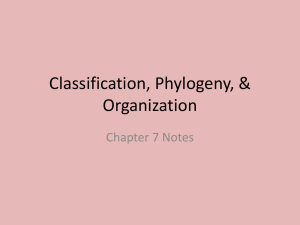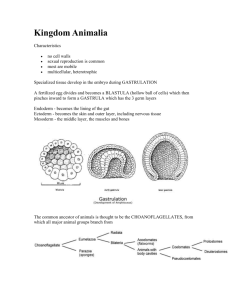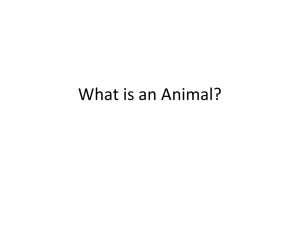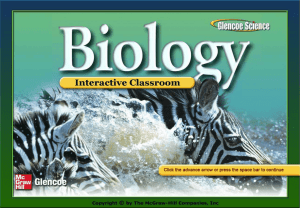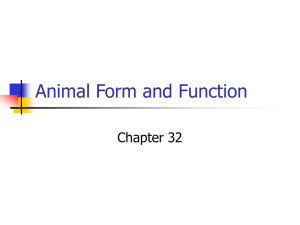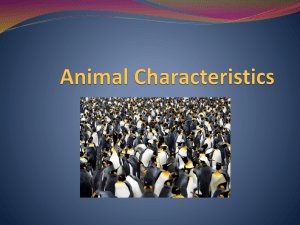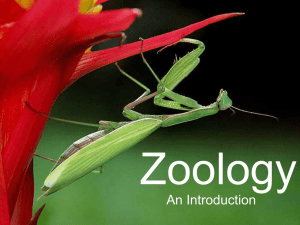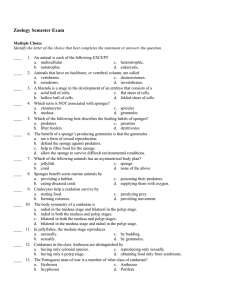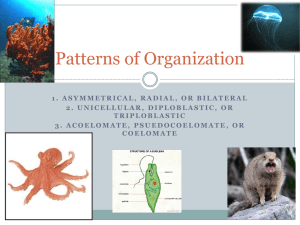Radial symmetry
advertisement
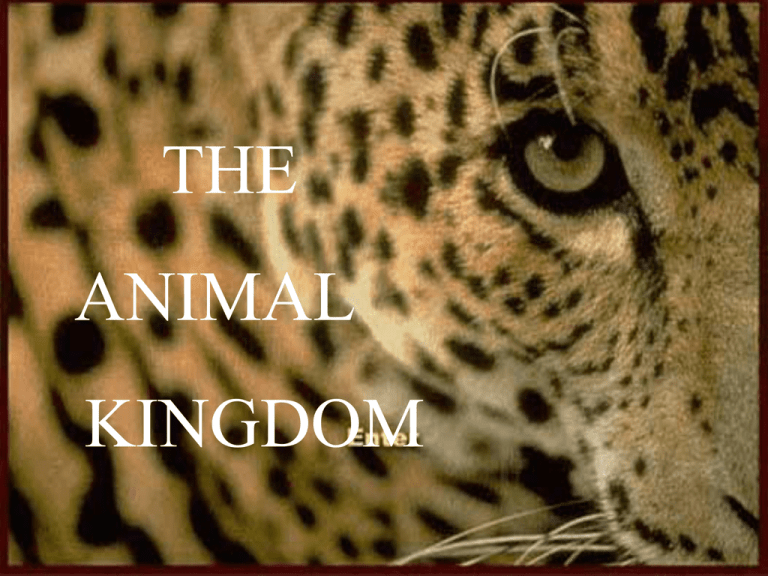
THE ANIMAL KINGDOM (Use table)Characteristics of Animals Cell type: Multicellular, eukaryotes Digestion: Heterotrophs Reproduction: Most sexual; some asexual • Movement: Usually Other- 7 things • 1. no cell wall • 2. Require oxygen 3. Symmetry: balance in body proportions 3 Types Bilateral: can be divided only one way to produce mirror image halves AsymmetricalIrregular shape Radial symmetry: can be divided along any plane to produce 2 halves which look alike 4. Body arrangements: a. anterior: head region b. posterior: tail region c. dorsal: back or top d. ventral: abdomen or bottom 5. Body Development • As embryo develops, three germ layers form: a. Ectoderm • becomes nervous system, epidermis of the skin, pituitary, lens of eye b. • becomes muscles, skeleton, notochord, Mesoderm circulatory system, kidney, reproductive system • becomes lining of digestive tract, liver, c. pancreas, epithelial lining of lungs, many Endoderm endocrine glands 6. Body Cavities a. Acoelomatesno body cavity lined with mesoderm • EX: sponges, cnidarians, & flatworms b. Pseudocoelomatespartial body cavity lined with mesoderm • “Tube within a tube” body plan • EX: roundworms c. Coelomatestrue body cavity lined with mesoderm • EX: all other animals Advantages of a body cavity (coelom or pseudocoelom): • Fluid in cavity helps distribute food, wastes, hormones, etc. from one end of animal to the other • Better distribution allows animal to grow larger • A place to put things, like new organs • Hydrostatic skeleton- pressure makes cavity rigid 7. Cephalization-concentration of sense organsdeveloped nervous system THE ANIMAL KINGDOM OVERVIEW • Invertebrates-no backbone • Vertebrates or Chordates-backbone Invertebrate Cladogram Section 29-1 Echinoderms Chordates Arthropods Annelids Mollusks Radial Symmetry Roundworms Flatworms Pseudocoelom Cnidarians Radial Symmetry Protostome Development Three Germ Layers; Bilateral Symmetry Sponges Tissues Multicellularity Single-celled ancestor Deuterostome Development Coelom
